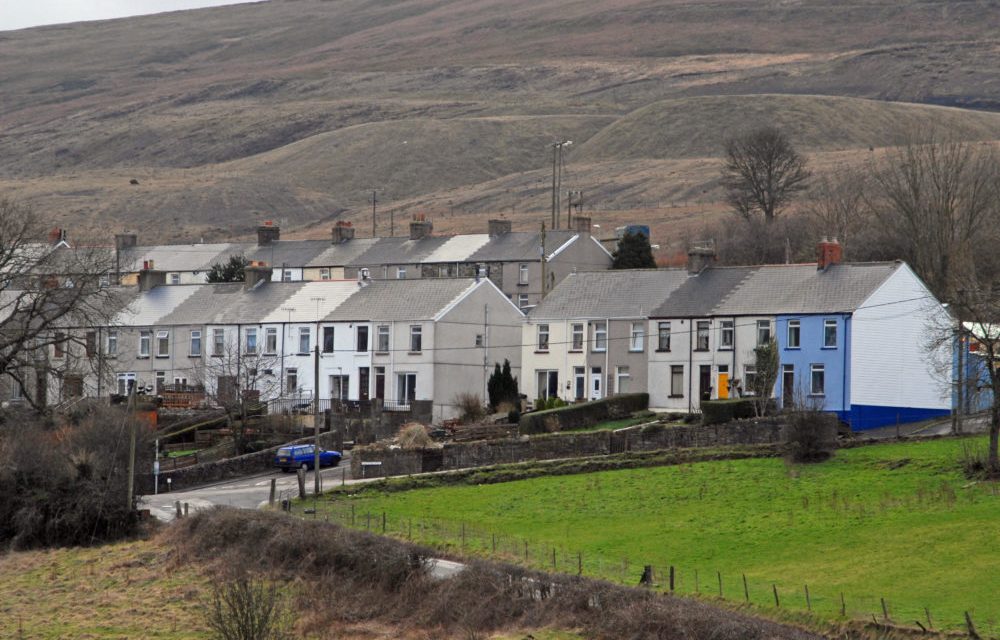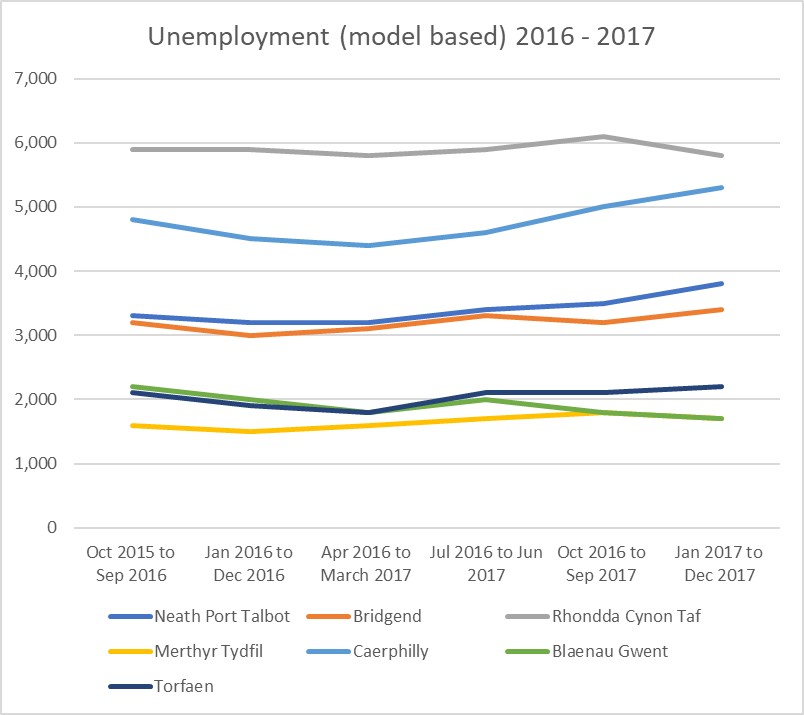 Economy
Economy 
With the Assembly set to hear a statement on the future of the Valleys, Victoria Winckler sets out what they should look out for.
On Tuesday 10th July 2018, Assembly Members will hear a progress report by the Cabinet Secretary for Local Government and Public Services on Our Valleys, Our Future. The report comes two years on from the Valleys Task Force’s launch, and a year since the publication of the Task Force’s first action plan.
But what has the Valleys Task Force achieved?
I have no idea what the progress report will say but it will doubtless be full of claims of success and some heart-warming stories, with media-friendly sound-bites and and perhaps a few vague promises about the future.
But the achievements of the Task Force should not be measured against self-defined benchmarks of activity, but against whether the Task Force is making any different to people’s lives on the ground. This is of course a much more challenging test.
Let’s take one of the most immediate measures of change – unemployment. The number of people out of work shows very quickly how well or otherwise an economy or labour market is doing. The graph below shows the number of people out of work from the year ending September 2016 to the year ending December 2017, as published by ONS.

With the exception of Blaenau Gwent, what’s striking is that the number of people who are unemployed in the local authorities that cover the valleys is at best static and at worst going up. The work of the Task Force has clearly yet to take effect on this measure at least.
The position is even worse for some people. In Rhondda Cynon Taf, Caerphilly and Neath Port Talbot, unemployment amongst young men aged 16-24 stands at around 25%. One in four young men is out of work.
So what’s going wrong?
The Valleys Task Force is full of good intent and it has some good plans. But there are three underlying difficulties with it that is has yet to address.
Clearer focus
The first difficulty is that the Task Force’s plans are not sharply focused. The area it is meant to address is loosely drawn, covering large parts of south Wales where there isn’t an economic problem and where people almost certainly do not think they are from ‘the valleys’.
The lack of focus means that efforts are spread too thinly over too big an area. Even worse, the slippery geography allows developments to be presented as being ‘in the valleys’. For sure, Treforest is up the A470 but to someone living in Tredegar or Treherbert it may as well be in Cardiff – it is in the upper parts of the valleys the most acute challenges lie and where effort should be targetted.
So, going forward, there needs to be a much tighter definition of ‘the valleys’ so that it excludes what for all intents and purposes is Greater Cardiff.
Effective Solutions
What’s not to like in the Task Force delivery plan? It is full of proposals that nobody would reject. But the deep-rooted causes of socio-economic problems in the valleys – the weakness of the local economy and labour market and the shocking lack of skills and qualifications – are simply not addressed.
These challenges need much more than creating hubs for digital businesses, relocating some public sector jobs (which remain occupied by officials from outside the area) or cautious tweaks to public procurement. They need a wholesale reinvention and rebuilding of an economy ravaged by coal and steel closures and by successive recessions. It is NOT impossible to rebuild economies – and the valleys should not be left to wither.
They also need a multi-agency action. The Task Force delivery plan is dominated by actions by Welsh Government and other Government bodies. Local authorities, the third sector and FE colleges are conspicuous by their absence and yet is the latter which arguably make more difference to people’s lives.
Solutions at Scale
The same ‘what’s not to like’ sense applies to the scale of solutions too.
Unfortunately, worthy though they may be. far too many Welsh Government initiatives are good ideas that are simply too small to make a difference. To illustrate, look at the Task Force Delivery Plan. Under ‘Better Jobs, Closer to Home’ is the promise of a recycled paint plant for Merthyr Tydfil. They are fine, but they are simply not enough to make the merest dint in the shortfall of jobs that besets the area. It would take 100 paint plants to make any tangible difference.
So if it works, scale it up – don’t fiddle round the edges.
If it is the case that the Task Force progress report bigs up its achievements, the impact is far worse than a lack of action. It reinforces the sense that governments of all stripes are out of touch with everyday life and everything is just smoke and mirrors. People in the valleys are already disillusioned with the powers that be – a glowing, self-congratulatory report will make it all the worse.
And so, the verdict? I’m sorry to say this, but although the Task Force means well it is simply too little, over too large an area, and doesn’t address the underlying problems.
Victoria Winckler is Director of the Bevan Foundation.



Victoria: Excellent piece. As an ex Director of the WDA (some years ago) I think that you put your finger on the key aspects of the problem: superficial politics; lack of technical analysis and focus; civil service culture not task oriented and so on. Thank you.